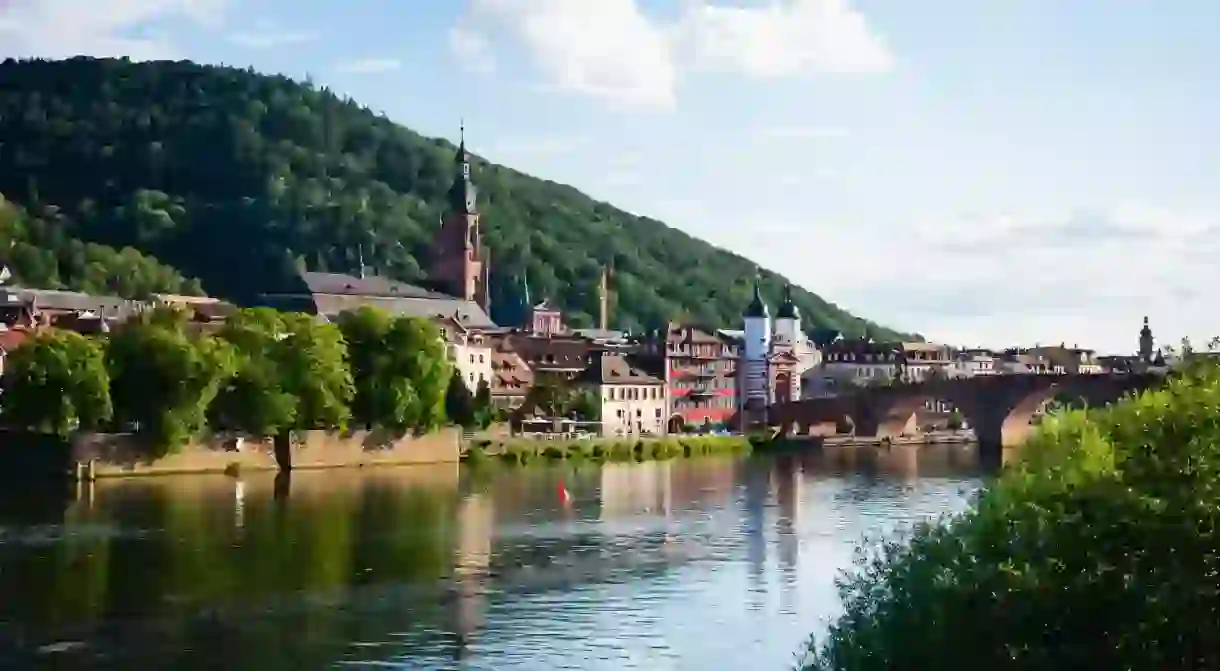The Complete Guide To German Dialects

For readers who have ever studied German, the langauge they are used to hearing is the classic patter of High German’s complicated consonant shift. High German, or Hochdeutsch, is to German what Received Pronunciation is to British English. However, there are tensions between the local dialects. What follows is a kind of German dialect cheat-sheet, to help guide intrepid explorers who are keen to make it with locals using dialect tricks to blend in.
Niederdeutsch
Niederdeutsch, sometimes called Plattdeutsch, is the dialect spoken in the areas of northern Germany and in parts of the eastern part of the Netherlands. Niederdeutsch is sometimes also called ‘Low’ German, in contrast to High German, but this reflects that Niederdeutsch in spoken also in the Netherlands (the Low Country). Because Niederdeutsch is spoken both by German and Dutch people, there is some suggestion that it is a mistake to count it as a dialect, and instead that it would be more proper to classify it as a language in itself. In fact, there are 700,000 speakers of Niederdeutsch, although this number was closer to 1.4 million speakers 20 years ago. In an effort to keep Plattdeutsch around, amateur musicians living in Lower Saxony who are between the ages of 15 and 30 can submit an original song, and the Plattsounds team will then help the band translate the song into Plattdeutsch. Variants of Niederdeutsch are spoken in the Ruhr area and around Hamburg.

Essential Niederdeutsch:
Hello | Hochdeutsch –> Hallo Hello | Niederdeutch –> Moin
Goodbye | Hochdeutsch –> Tscüß Goodbye | Niederdeutsch –> Ajüüs
Cheers! | Hochdeutsch –> Prost! Cheers! | Niederdeutsch –> Hold di fuchtig!
Mitteldeutsch
Spoken in a number of different ways all across the middle of the country, Mitteldeutsch (Middle German) is the most widely spoken dialect in the country. Spreading from Dusseldorf and Cologne in the west, right across to Frankfurt and Berlin, Mitteldeutsch is prevalent in most of the country’s major cities (with the notable exceptions of Hamburg and Munich). Mitteldeutsch include a host of major local dialects like: Kölsch, Thüringisch, Mainzerisch, Hesisch, Saarländsch, Pfälzisch, Sächsisch, and Berlinersch. While Berlinerisch and Kölsch, for example, both fit under the umbrella of Mitteldeutsch, there are serious differences between the two. Indeed, the differences between the local manifestations of each of these Mitteldeutsch dialects are more pronounced that the between Niederdetusch and Oberdeutsch dialects.

Essential Mitteldeutsch
Everything is OK | Hochdeutsch | Alles ist OK | Mitteldeutsch (Berlinersch) | Alles Paletti
Hello | Hochdeutsch | Hallo | Mitteldetusch (Kölsch) | Jode Dach!
Drink | Hochdeutsch | Trink | Mitteldeutsch (Hesisch) | Petzle
Oberdeutsch
Oberdeutsch, usually characterized as Bavarian German or Upper German, is spoken across the south of the country. Oberdeutsch is fairly far away from Hochdeutsch in terms of both pronunciation and spelling and even for native Germans, Oberdeutsch can be difficult to understand. As with Mitteldeutsch, for those hoping to pick up Oberdeutsch there’s a long road with a number of different variations of local languages ahead.

Essential Oberdeutsch
Goodbye | Hochdeutsch | Tschüß | Oberdeutsch | Pfiat eich!
Good day | Hochdeutsch –> Guten Tag –> Oberdeutsch | Grüß dich
I’m Sorry | Hochdeutsch | Es tut mir Leid | Oberdeutsch | Deesch mr abr arrg
Did you know – Culture Trip now does bookable, small-group trips? Pick from authentic, immersive Epic Trips, compact and action-packed Mini Trips and sparkling, expansive Sailing Trips.













